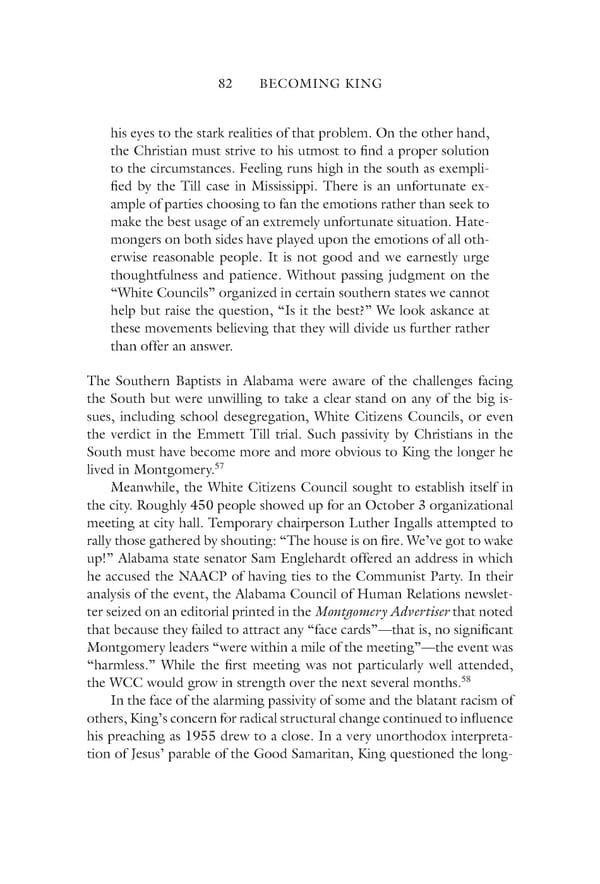82 BECOMING KING his eyes to the stark realities of that problem. On the other hand, the Christian must strive to his utmost to find a proper solution to the circumstances. Feeling runs high in the south as exempli- fied by the Till case in Mississippi. There is an unfortunate ex- ample of parties choosing to fan the emotions rather than seek to make the best usage of an extremely unfortunate situation. Hate- mongers on both sides have played upon the emotions of all oth- erwise reasonable people. It is not good and we earnestly urge thoughtfulness and patience. Without passing judgment on the “White Councils” organized in certain southern states we cannot help but raise the question, “Is it the best?” We look askance at these movements believing that they will divide us further rather than offer an answer. The Southern Baptists in Alabama were aware of the challenges facing the South but were unwilling to take a clear stand on any of the big is- sues, including school desegregation, White Citizens Councils, or even the verdict in the Emmett Till trial. Such passivity by Christians in the South must have become more and more obvious to King the longer he 57 lived in Montgomery. Meanwhile, the White Citizens Council sought to establish itself in the city. Roughly 450 people showed up for an October 3 organizational meeting at city hall. Temporary chairperson Luther Ingalls attempted to rally those gathered by shouting: “The house is on fire. We’ve got to wake up!” Alabama state senator Sam Englehardt offered an address in which he accused the NAACP of having ties to the Communist Party. In their analysis of the event, the Alabama Council of Human Relations newslet- ter seized on an editorial printed in the Montgomery Advertiser that noted that because they failed to attract any “face cards”—that is, no significant Montgomery leaders “were within a mile of the meeting”—the event was “harmless.” While the first meeting was not particularly well attended, 58 the WCC would grow in strength over the next several months. In the face of the alarming passivity of some and the blatant racism of others, King’s concern for radical structural change continued to influence his preaching as 1955 drew to a close. In a very unorthodox interpreta- tion of Jesus’ parable of the Good Samaritan, King questioned the long-
 Becoming King: Martin Luther King Jr. Page 102 Page 104
Becoming King: Martin Luther King Jr. Page 102 Page 104